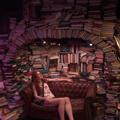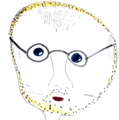Leyssandra reviewed The Book of Dust by Philip Pullman
None
3 stars
First of all, despite the cover art, the series name is "The Book of Dust" and the book's name is "La Belle Sauvage" (the name of our protagonist's canoe) which is good, because I don't think I could read another page about their time in a canoe. From the beginning to the end, nothing much really changes or gets resolved. Just a lot of time hiding in a canoe and stopping at various enchanted ... islands? (I think I've read this book before, by Homer.) There are some really dark themes and nightmare inducing scenes in here too which takes that of His Dark Materials to a new level. All that said, I'm conflicted because the writing is really good, the characters are complex and develop throughout the book, and I want to see Lyra again (though hopefully as more than a helpless baby), so, assuming he ditches the canoe, …
First of all, despite the cover art, the series name is "The Book of Dust" and the book's name is "La Belle Sauvage" (the name of our protagonist's canoe) which is good, because I don't think I could read another page about their time in a canoe. From the beginning to the end, nothing much really changes or gets resolved. Just a lot of time hiding in a canoe and stopping at various enchanted ... islands? (I think I've read this book before, by Homer.) There are some really dark themes and nightmare inducing scenes in here too which takes that of His Dark Materials to a new level. All that said, I'm conflicted because the writing is really good, the characters are complex and develop throughout the book, and I want to see Lyra again (though hopefully as more than a helpless baby), so, assuming he ditches the canoe, I will be continuing the series.







